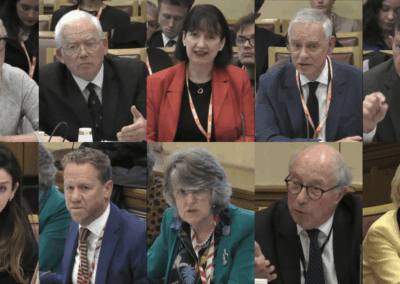In a move welcomed by pro-life groups, The Royal College of Physicians (RCP) has released a statement on its website clarifying that it does not support a change in the law on assisted suicide.
The RCP, which represents more than 35,000 doctors, dropped its long-standing opposition to assisted dying in favour of neutrality following a controversial survey of its members last year.
In a highly contentious move criticised by over 1,500 doctors, the RCP’s Council said ahead of the vote that the College would go neutral unless 60% of its members voted either in favour or against assisted suicide.
The resulting survey revealed 43.4% said the organisation should be opposed to a change in the law to allow assisted dying, while nearly a third (31.6%) said it should support a change in the law and a quarter (25%) said it should be neutral.
Despite continued opposition to assisted suicide being the most favoured position among those surveyed, the RCP adopted a neutral position to assisted suicide.
The change in stance and the irregular framing of the poll prompted a legal challenge.
Professor John Saunders, a Fellow of the RCP and the former chair of its Ethics Committee labelled the survey as a “sham with a rigged outcome”.
Peer and Former Paralympian Baroness Grey-Thompson had warned that the RCP’s survey was: ‘A travesty of a consultation and… it risks bringing the college into disrepute as professional body’.
Now, in a statement on its website this week, the RCP has clarified that it does not support a change to the law.
“Neutrality was defined as neither supporting nor opposing a change in the law, to try to represent the breadth of views within its membership,” it said.
“Regrettably, this position has been interpreted by some as suggesting that the College is either indifferent to legal change or is supportive of a change in the law.
“So that there can be no doubt, the RCP clarifies that it does not support a change in the law to permit assisted dying at the present time.”
The clarification was welcomed by Dr Gordon Macdonald, Chief Executive of Care Not Killing.
He said: “This extensive and unusually frank statement from the UK’s oldest medical organisation, rightly puts a sword to the lie that RCP supports a change in the law – it does not.
“The current laws on assisted suicide and euthanasia exist to protect those who are sick, elderly, depressed or disabled from feeling obliged to end their lives. This is not an imagined risk.
“As we have seen in places like Oregon and Washington, a majority of those ending their lives cite the fear of being a burden on their families and carers as a reason for the decision to end their life.”
Earlier this year, The Royal College of General Practitioners (RCGP) announced it will continue to oppose a change in law on assisted suicide following a consultation of its members.
The RCGP’s consultation, conducted independently by Savanta ComRes, was sent to almost 50,000 members, who were asked whether RCGP should change its current position of opposing a change in the law on assisted dying.
Just under half (47%) of those surveyed said the College should not change its position, while 40% said it should support a law change providing there is a regulatory framework and appropriate safeguarding processes in place. 11% of respondents said the RCGPs should be neutral, while 2% abstained.
The British Medical Association (BMA) recently polled its member’s views on assisted suicide. The results of the first-ever BMA survey on assisted dying, which closed on 27 February, were due to be discussed at this year’s annual representatives meeting in June and could see the professional body changing its current policy on assisted suicide.
However, due to the coronavirus crisis all BMA events have been cancelled for the foreseeable future meaning any announcement is likely to be postponed.
Activists have been attempting to introduce assisted suicide legislation to the UK through the courts, through parliament and through pressuring medical bodies but continue to face obstacles.
Last year, the High Court rejected to hold a judicial review of the current law on assisted suicide, with judges stating the court was “not an appropriate forum for the discussion of the sanctity of life”. The Court of Appeal rejected an attempt to challenge this decision last month.
Similarly, in 2018, the Court of Appeal ruled that Parliament was a “better forum” than the courts for determining the issue of legalising assisted suicide.
Parliament has consistently rejected attempts by the assisted suicide lobby to introduce assisted suicide, with 330 to 118 voting against introducing assisted suicide in 2015.
In January, strong opposition from MPs resulted in the Government rejecting a call for review on assisted suicide, despite the best efforts from large pressure groups in favour of assisted suicide.
Additionally, the Lord Chancellor Robert Buckland QC has recently confirmed the Government has “no plans” to introduce assisted suicide legislation, saying: “Personally, I have grave doubts about the ability of legislation to be watertight when it comes to the potential for abuse.”Assisted suicide pressure groups cite a poll that shows there is widespread support for legislation of assisted suicide, yet experts have heavily criticised the polling as deeply flawed. In fact, when asked questions that drill down into the merits of the debate, the percentage of those in support drops dramatically.












